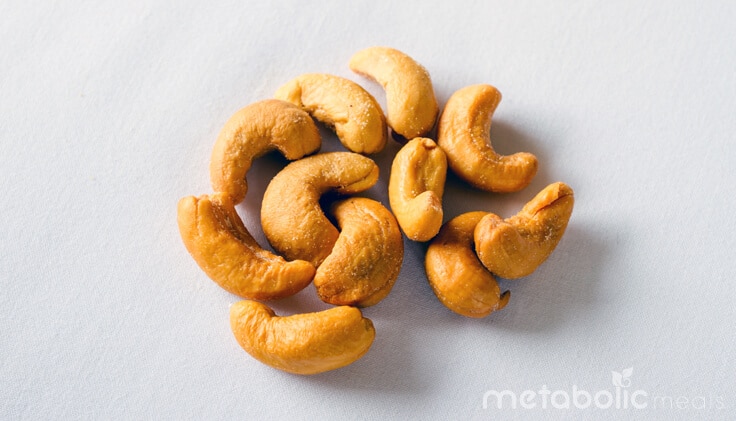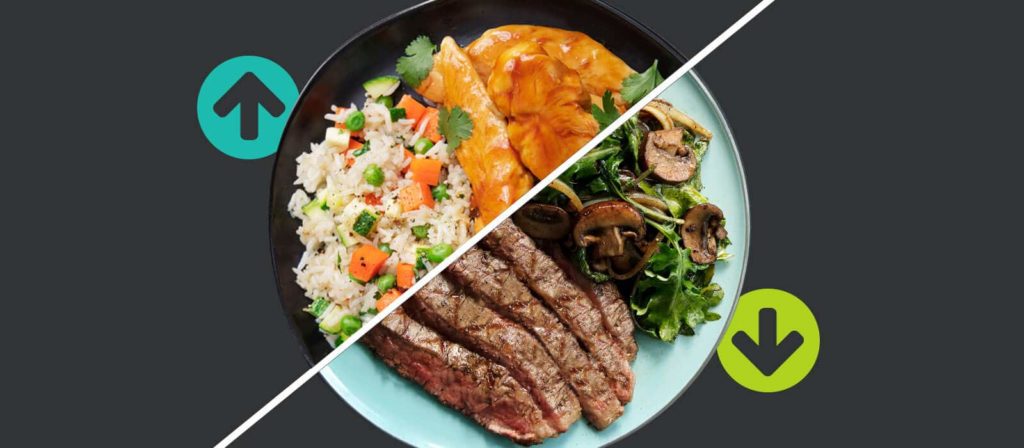Frequent bouts of high blood sugar can cause a wealth of problems, starting with insulin resistance. Of course, the first thing that likely comes to mind when considering insulin resistance is diabetes. A recent report from the Centers for Disease Control and Prevention states that just under half of the U.S. population is diabetic or prediabetic — a startling statistic.
It’s time for Americans to take a hard look at their blood sugar levels and consider ways to begin lowering them.
Your body naturally increases insulin production to reduce blood sugar levels after eating. But if your body’s blood sugar levels are raised too high or too frequently — or both — your cells will become resistant to low amounts of insulin, requiring larger amounts of insulin to drive blood sugar back down.

Try a Diabetic-Friendly Meal Plan
These increasing levels of insulin circulating in your body disrupt normal cholesterol and fat metabolism, make it difficult to process carbohydrates, and set the stage for increased inflammation, which is the root cause for many diseases. Insulin resistance also leads to other hormonal imbalances such as hypothyroidism, adrenal fatigue, low testosterone levels, and polycystic ovary syndrome. And when you start to lose insulin sensitivity, it becomes much easier to start storing body fat.
Identifying and fighting insulin resistance
You can’t be sure whether you have diabetes, prediabetes, or insulin resistance until you consult your doctor, but there are a few signs you shouldn’t ignore. Early symptoms can range from increased thirst and urination to fatigue and depression to weight gain around your waist.
If you suffer from any combination of these symptoms — especially if you have a history of diabetes in your family or live a relatively sedentary lifestyle — don’t ignore them. Get tested for insulin resistance and diabetes right away.
Whether you are insulin-resistant, diabetic, or neither, keeping your blood sugar levels within the normal range is key to maintaining a healthy lifestyle. Fortunately, there are ways you can naturally keep your blood sugar levels low. Consider these five strategies:
1. Eat fewer than 50 grams of carbohydrates per day.
Of the three main macronutrients — fat, protein, and carbohydrates — only carbs require a major boost in insulin, which prompts cells to absorb blood sugar for either energy or storage. Low-carb diets, and including more healthy fats have been shown to decrease insulin resistance. Including more proteins and fats than carbohydrates in your diet will keep your blood sugar consistently lower, allowing your body to regain lost insulin sensitivity and improving your overall health.
2. Consume more omega-3 fatty acids.

Most people eat too many foods high in omega-6 fatty acids — those found in processed vegetable oils and products from grain-fed animals. Too much omega-6 in your diet can cause excess inflammation. But if you adjust your diet to include more grass-fed proteins, wild-caught fish, and fish oil supplementation, you can increase the omega 3’s in your diet, lowering inflammation and building up the lipid layer of your cells, which can increase insulin sensitivity.
3. Add more magnesium to your diet.

Several studies have shown that an increase in magnesium intake decreases one’s risk for diabetes, but many people don’t get enough magnesium in their everyday diets. Magnesium is found in leafy greens, nuts, seeds, and legumes. Chelated magnesium supplements and Epsom salt baths are also great ways to raise your magnesium levels. A magnesium RBC test, which identifies magnesium present in red blood cells, is the most accurate way to check your levels.
4. Lift weights.
Exercise can be extremely beneficial in combating high blood sugar. Strength training in particular causes your cells to become desperate for fuel during and after your workout, meaning your body will consume any available stored glucose for hours, even after your training session is over. Furthermore, for every 10 percent increase in muscle mass you experience, you’ll see a similar increase in insulin sensitivity.
5. Take apple cider vinegar daily.

One of the most common causes of insomnia is high blood sugar, and lack of sleep can further increase insulin resistance, creating a vicious cycle. Apple cider vinegar has been shown to dramatically lower blood sugar, which can help you sleep more deeply and can keep your body from becoming more insulin-resistant. It also can improve digestion and destroy bad bacteria. Take one tablespoon of apple cider vinegar mixed into water each night before you go to bed.
Insulin resistance is the first step toward many health problems, from increased inflammation to diabetes and hormonal imbalances. But following these strategies will keep your blood sugar low, increase your insulin sensitivity, and improve your overall health.






